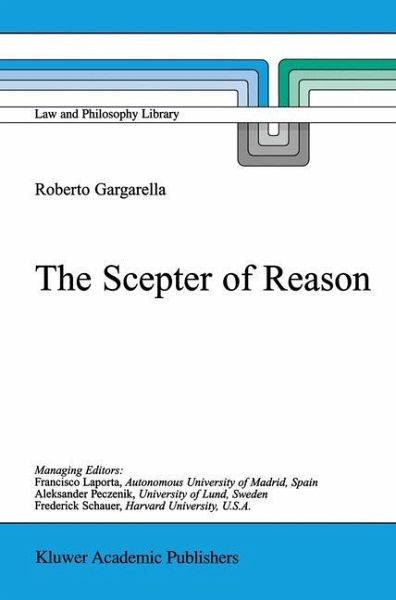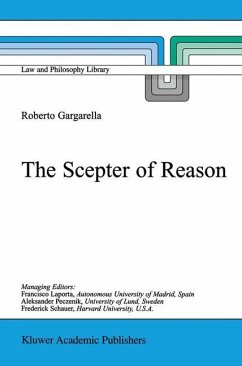
The Scepter of Reason
Public Discussion and Political Radicalism in the Origins of Constitutionalism
Versandkostenfrei!
Versandfertig in 1-2 Wochen
39,99 €
inkl. MwSt.

PAYBACK Punkte
20 °P sammeln!
It is not unusual that formal and informal discussions about the political system, its virtues, and its many defects, conclude in a discussion about impartiality. In fact, we all discuss impartiality when we talk about the best way to equally consider all viewpoints. We show our concerns with impartiality when, facing a particular problem, we try to figure out the best solution for all of us, given our conflicting interests. Thus, the quest for impartiality tends to be a common objective for most of us, although we normally disagree on its particular contents. Generally, these formal and infor...
It is not unusual that formal and informal discussions about the political system, its virtues, and its many defects, conclude in a discussion about impartiality. In fact, we all discuss impartiality when we talk about the best way to equally consider all viewpoints. We show our concerns with impartiality when, facing a particular problem, we try to figure out the best solution for all of us, given our conflicting interests. Thus, the quest for impartiality tends to be a common objective for most of us, although we normally disagree on its particular contents. Generally, these formal and informal discussions about impartiality conclude in a dispute between different "epistemic" conceptions. That is to say, simply, that in these situations we begin to disagree about best procedure to defme the more neutral, impartial solution for all of us.! Basically, trying to answer this question we tend to fluctuate between two opposite positions. According to some, the best way to know which is the more impartial solution is to resort to a process of collective reflection: in those situations we have to consider the opinions of all those who are possibly affected.














